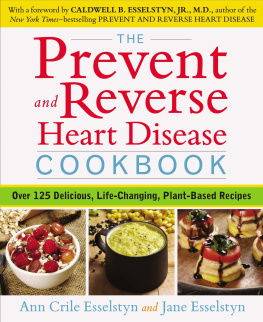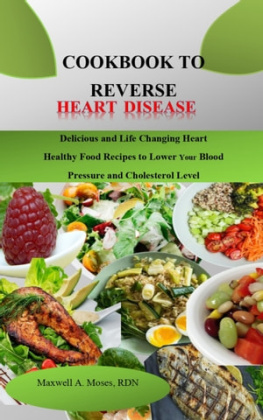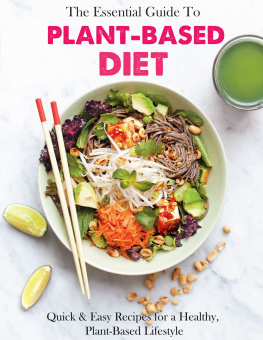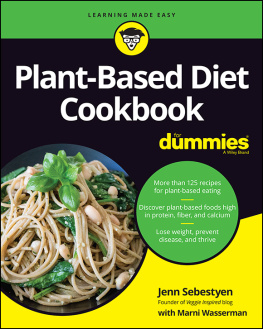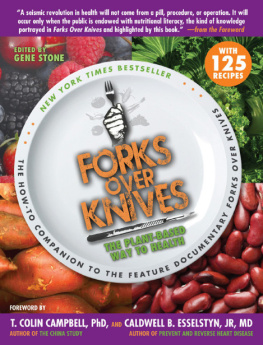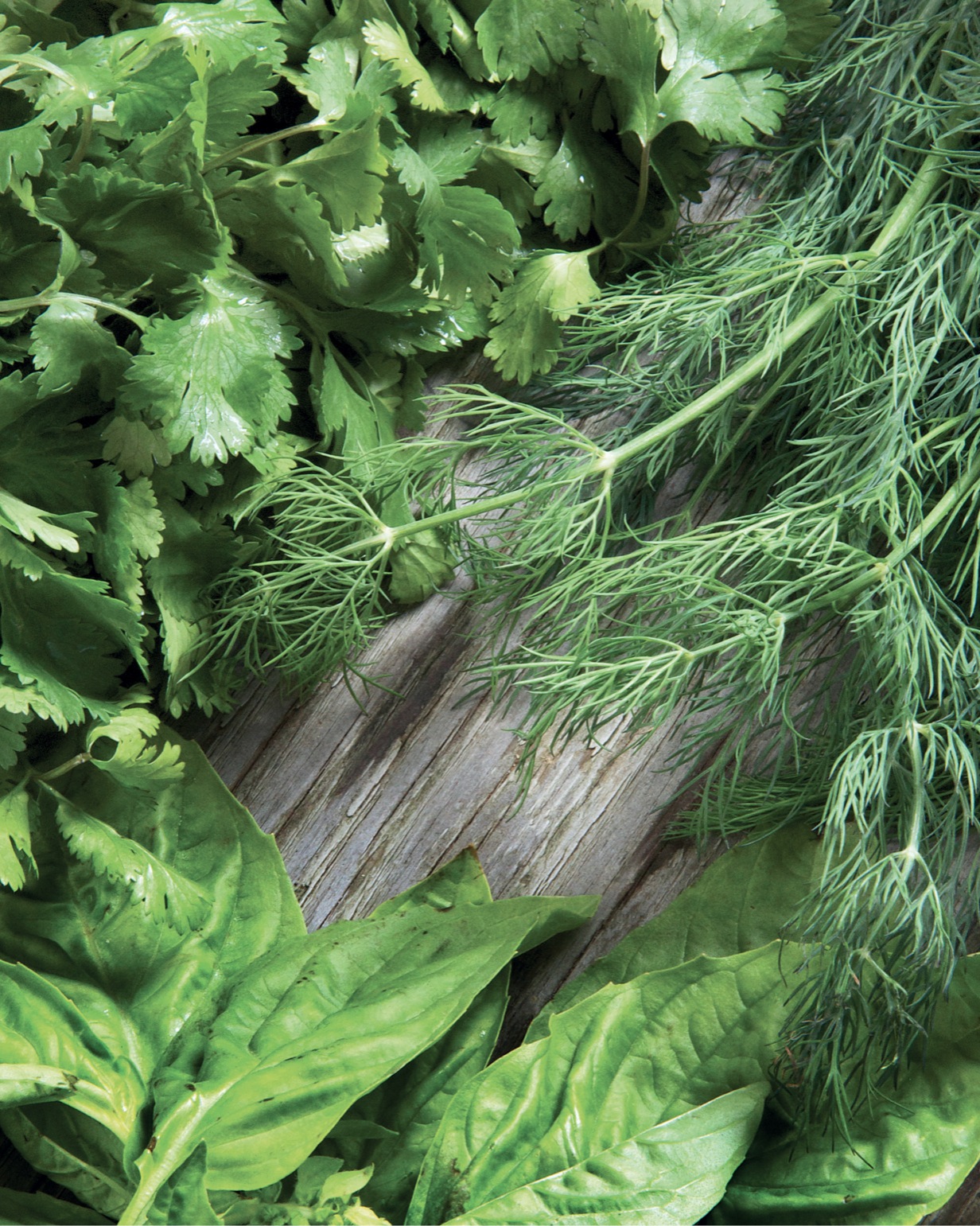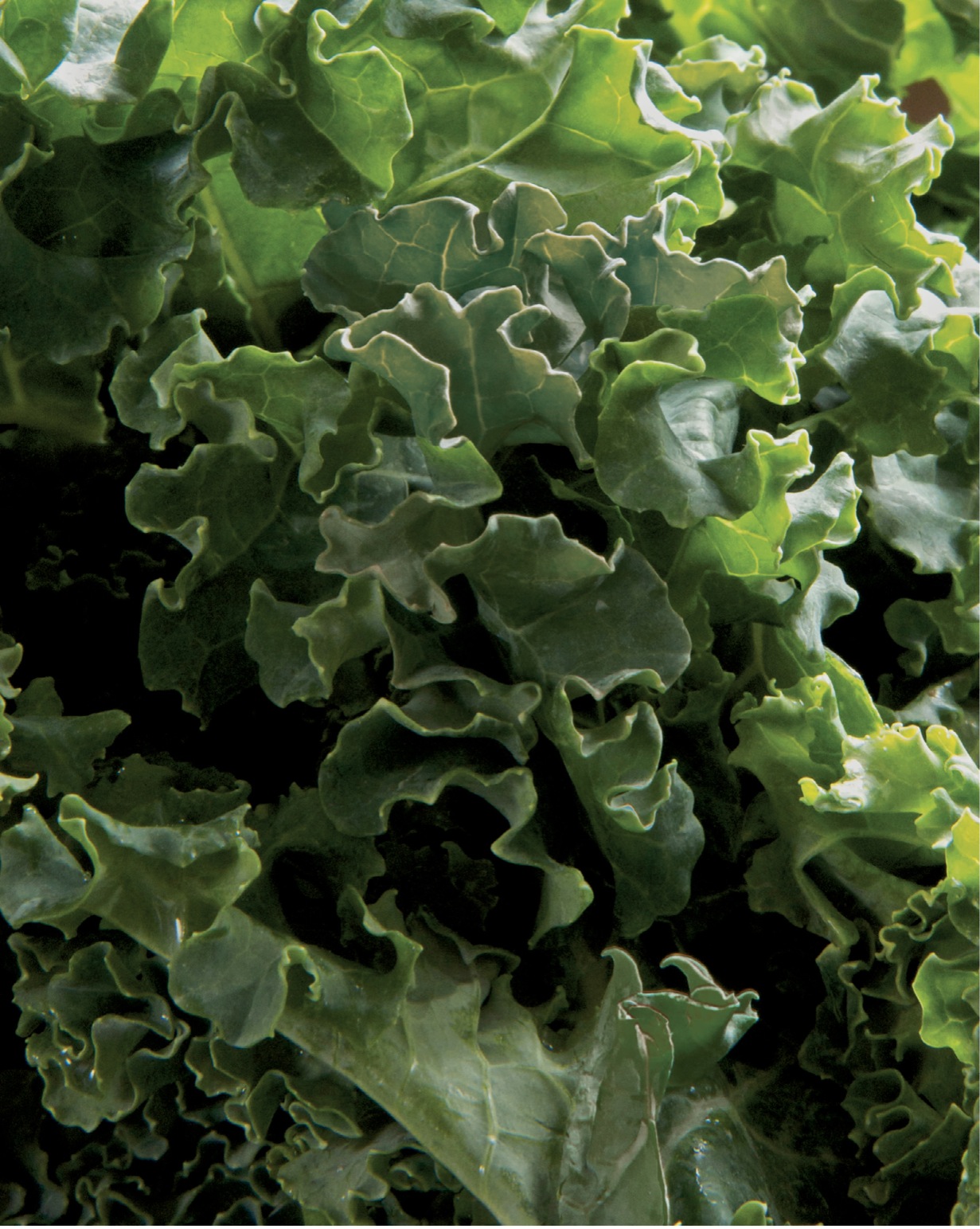
Published by the Penguin Group
Penguin Group (USA) LLC
375 Hudson Street
New York, New York 10014

USA Canada UK Ireland Australia New Zealand India South Africa China
penguin.com
A Penguin Random House Company
Text and recipes copyright 2014 by Ann Crile Esselstyn and Jane Esselstyn
Foreword copyright 2014 by Caldwell B. Esselstyn, Jr., MD
Photographs copyright 2014 by Donna Turner Ruhlman
Penguin supports copyright. Copyright fuels creativity, encourages diverse voices, promotes free speech, and creates a vibrant culture. Thank you for buying an authorized edition of this book and for complying with copyright laws by not reproducing, scanning, or distributing any part of it in any form without permission. You are supporting writers and allowing Penguin to continue to publish books for every reader.
Most Avery books are available at special quantity discounts for bulk purchase for sales promotions, premiums, fund-raising, and educational needs. Special books or book excerpts also can be created to fit specific needs. For details, write Special.Markets@us.penguingroup.com.
Library of Congress Cataloging-in-Publication Data
Esselstyn, Ann Crile.
The prevent and reverse heart disease cookbook : more than 125 delicious, life-changing, plant-based recipes / Ann Crile Esselstyn, Jane Esselstyn.
p. cm.
Companion volume to: Prevent and reverse heart disease. New York : Avery, 2007.
ISBN 978-0-698-18650-7
1. Coronary heart diseaseDiet therapyRecipes. 2. Coronary heart diseasePrevention. 3. Vegetarian cooking. 4. Natural foods. I. Esselstyn, Jane. II. Esselstyn, Caldwell B., 1933 Prevent and reverse heart disease. III. Title.
RC685.C6E75 2014
641.5'6311dc23 2014015575
Neither the publisher nor the author is engaged in rendering professional advice or services to the individual reader. The ideas, procedures, and suggestions contained in this book are not intended as a substitute for consulting with your physician. All matters regarding your health require medical supervision. Neither the author nor the publisher shall be liable or responsible for any loss or damage allegedly arising from any information or suggestion in this book.
The recipes contained in this book have been created for the ingredients and techniques indicated. The publisher is not responsible for your specific health or allergy needs that may require supervision. Nor is the publisher responsible for any adverse reactions you may have to the recipes contained in the book, whether you follow them as written or modify them to suit your personal dietary needs or tastes.
Some names and identifying characteristics have been changed to protect the privacy of the individuals involved.
Version_1
THIS BOOK IS DEDICATED TO
Bok choy,
Swiss chard,
kale,
collards,
collard greens,
beet greens,
mustard greens,
turnip greens,
Napa cabbage,
Brussels sprouts,
broccoli,
cauliflower,
cilantro,
parsley,
spinach,
arugula,
and asparagus.
But most especially to Caldwell B. Esselstyn, Jr., MD, husband, father, and the voice behind it all.
And also to Brian Hart, husband, son-in law, and the best cook in the family.
CONTENTS
FOREWORD
J ust imagine that you and all of your loved ones could enjoy the treasured gift of lifelong health and wellness. This is not only possible, but it is at your fingertips this very moment through the recipes in The Prevent and Reverse Heart Disease Cookbook.
In 2007, I published Prevent and Reverse Heart Disease. I was driven to write this book because my research had shown that patients who had significant coronary artery heart disease could halt and reverse their illness simply by avoiding any oil, meat, and dairy products and eating whole food, plant-based nutrition.
My research, and the science behind whole food, plant-based nutrition, indicates that the endothelial cells, which line our blood vessels and are the life jacket and guardian of blood vessel health, are repeatedly injured from eating oils and animal-based foods.
I published the results of my original study in the Journal of Family Practice in 1995 and a twelve-year follow-up study in the American Journal of Cardiology in 1998. I wrote Prevent and Reverse Heart Disease in 2007 to share my groundbreaking findings more widely and to spread the message that by changing our nutrition, we can make ourselves heart-attack-proof.
It was gratifying when the book became a bestseller, reflecting the thirst for this breakthrough information. People rejoice when they become aware that they are empowered as the locus of control to halt and reverse a disease that has been destroying them.
There is broad evidence that plant-based nutrition is the key to abolishing chronic disease. Epidemiological studies of cultures that have traditionally plant-based diets confirm an absence of the common chronic diseases that kill so many Americans, such as heart disease, strokes, diabetes, hypertension, and obesity. These diseases and the drugs, procedures, and surgical interventions used for their treatment simply do not need to exist.
The strength of whole food, plant-based nutrition is further identified by studies of wartime deprivation. The 1951 study by Strom and Jansen [Mortality from circulatory diseases in Norway 19401945, Lancet (1951) 1: 126129] highlighted the decrease in deaths from heart attacks and stroke in Norway during World War II, when the Axis powers of Germany confiscated Norwegian livestock and when Norwegians were, by necessity, consuming plant-based nutrition.
Naysayers state that patients will not follow or adhere to a major nutritional transition. On the contraryour groups review of two hundred patients with significant cardiovascular disease, published in May 2014 by the Journal of Family Practice, found that nearly 90 percent of participants adhered to plant-based nutrition during the nearly four years of follow-up. We have found that the failure of other health professionals to achieve these results is not that the message is wrong but rather how the message is articulated.
There is nothing radical about a diet that most of the world follows by culture, heritage, and tradition, and that prevents the mortality, morbidity, and expense of treatment that accompanies common killing diseases. Economists estimate that eliminating heart disease would save the United States $40 trillion.
Recently, Cleveland Clinic cell biologist researchers discovered an additional way animal- and dairy-based foods injure arteries. Omnivores possess intestinal bacteria that convert ingested animal-based foods into trimethylamine N-oxide (TMAO). This molecule promotes vascular injury. People who consume plant-based foods simply do not possess the intestinal bacteria capable of making TMAO. These findings are yet another strong validation of the miraculous benefits of plant-based nutrition.

